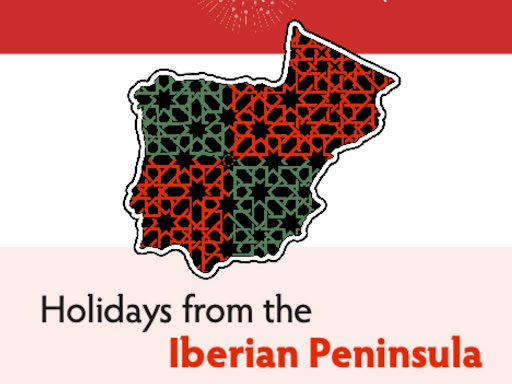by Mike Telin

On Friday, December 15 at 8:00 pm in Oberlin’s Fairchild Chapel, Ristow will lead the Cleveland Chamber Choir in “Holidays from the Iberian Peninsula.” The program includes works by Tomás Luis de Victoria, Matteo Flecha el Viejo, Vicente Lusitano, and Salamone Rossi, as well as music from the Sephardic Jewish tradition. The free program will be repeated on Saturday the 16th at 7:00 pm at First Baptist Church of Greater Cleveland.
While the concert will feature many audience favorites, Ristow noted that it also includes a number of long-hidden gems, including Flecha’s La Bomba, which opens the program. “He wrote in a genre we call ensalada, the Spanish word for salad, because it is as if you take snippets of madrigals, snippets of church polyphony, and snippets of Renaissance dance, and put them all together in a giant salad bowl and shake them up. And the result is this delightful, constantly changing mix of styles.”
The concert will conclude with the composer’s El Fuego and Fum, Fum, Fum, the latter in an arrangement by Alice Parker and Robert Shaw. “His music is just so much fun to perform, and we’ll do them with a Baroque style band — recorder, Baroque viola, gamba, Baroque guitar, and percussion.”
Another long-hidden gem is Lusitano’s Praeter rerum seriem, which Ristow said is a wonderful Renaissance motet for eight-part choir with a text that is a meditation on the story of the birth of Christ to Mary.
“Lusitano was an Afro-Portuguese composer and music theorist of the high Renaissance period. He’s known to us in history books for a famous debate that took place over the role of chromaticism — sharps and flats — within music of the time, but he was also quite a fine composer. And thanks to the work of the Marian Consort, who recorded most of his surviving music, his choral writing has recently come to light. This is just a magical piece that’s a treat to conduct.”
Ristow noted that Mi Zeh Y’maleil is a Sephardic Hanukkah tune that most likely dates from the Middle Ages. “It’s arranged by Joshua Jacobson, who founded the Zamir Chorale in Boston and taught at Northeastern University for many years, and is one of the most prominent composers and arrangers of music for the Jewish tradition.”
That work is paired with another little-known gem, Rossi’s setting of Psalm 118. “Rossi was an Italian Jewish composer who brought some of the more contemporary and popular classical music writing styles to the temple. And Psalm 118 feels very much like what you might hear from one of the Gabrielis. It has all those delightful late Renaissance, early Baroque flourishes and rhetorical gestures.”
Rounding out the program will be Victoria’s motet O Magnum Mysterium and Missa o magnum mysterium. “The motet is performed all the time — it’s a classic Christmas standard — but the mass is performed much less frequently and I think it is equally wonderful,” Ristow said. “It’s what we call a parody mass, which is to say that Victoria takes the music from the motet and arranges it to fit the text of the mass — at least in the opening Kyrie. From there he branches out into new music for the other movements with some references to the motet.”
Ristow is excited to be able to perform the program in two venues with stunning acoustics. “Fairchild Chapel and First Baptist are extraordinary places to hear Renaissance music with the warmth of the choral sound reverberating around.”
Published on ClevelandClassical.com December 12, 2023.
Click here for a printable copy of this article


